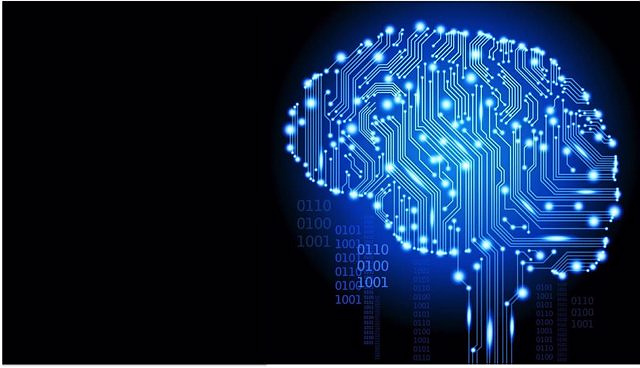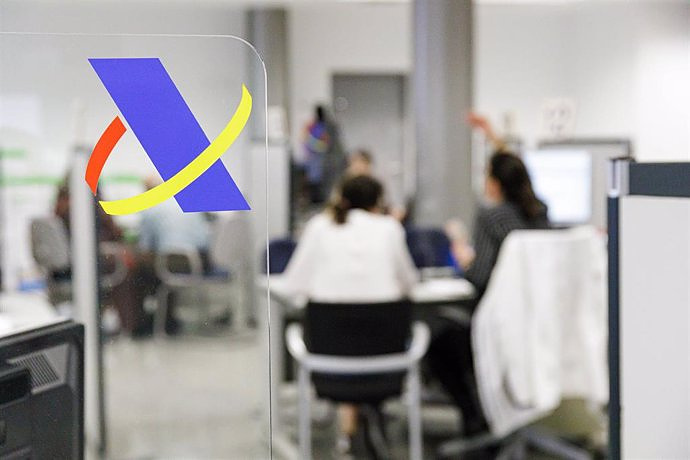The technology company points out that this translates into 1.4 billion of the 3.4 billion workers around the world.
MADRID, 21 Ago. (EUROPA PRESS) -
40% of the global workforce will need to retrain before the implementation of artificial intelligence (AI) automation, according to a global study by the IBM Institute for Business Value.
This figure translates to 1.4 billion of the 3.4 billion people who make up the global workforce, according to World Bank statistics.
The information, obtained through two extensive surveys, one with 3,000 global leaders in 28 countries and another with 21,000 workers in 22 countries, reveals that the acquisition of new skills by current employees is one of the main talent problems.
Also that the impact of AI will vary across groups of employees. Workers at all levels will feel the effects of Generative AI, but lower-level employees are expected to see the biggest change.
In this sense, 77% of the executives surveyed affirm that entry-level positions are already being affected by Generative AI and that this will intensify in the coming years. Instead, only 22% of those surveyed affirm that executive or senior management positions are already being affected.
However, IBM stresses that AI can open up more possibilities for employees by enhancing their capabilities. In fact, 87% of executives believe that the number of employees is more likely to grow than to be replaced by Generative AI.
This varies by role: 97% of executives believe purchasing employees are more likely to grow than be replaced, compared to 93% of risk and compliance employees, 93% % of those in finance, 77% of those in customer service and 73% of those in marketing.
Another relevant fact that the study finds is that the employees surveyed are more concerned with doing meaningful work than with flexibility and growth opportunities, but the leaders are not always in tune with their needs.
With AI poised to take on more manual and repetitive tasks, employees surveyed say that doing work that makes an impact is the factor they care about most, beyond pay and safety, more important than job flexibility, career opportunities, growth and equity.
In addition, almost half of the employees surveyed believe that the work they do is much more important than who they work for or with whom they usually work.
However, for the executives surveyed, working with impact is the least important factor for their employees and instead they point to work flexibility as the most important attribute, beyond compensation and security.
One of the conclusions of this IBM study is that "automating poor processes will not improve them." In other words, instead of automating the same old activities, you must find a better way forward.
Process mining can analyze how work gets done and where bottlenecks or other inefficiencies exist. From there, you can rethink and redesign how work gets done, identifying where AI can take the lead and where human experience and contact is critical.
Another conclusion of this study is that "this is a crucial moment for HR leaders to help define the organization's transformation strategy and how to combine people and AI to carry it out."
For this reason, he points out that HR leaders must drive the planning, design and strategy of the workforce, such as the definition of a higher value work, the identification of the functions and critical skills of the future and the management of hiring. , staff transition to new roles, retention and much more.
They will also need to be in charge of reviewing features, identifying and eliminating lower value tasks that can be handled by AI, merging features to create new ones, expanding features to include tasks such as application or management of AI tools and skill development for higher level tasks performed by people.
Finally, IBM's conclusions also include that jobs should be given more meaning by putting the employee "in the driver's seat."
In other words, AI has the potential to transform the employee experience, as it can automate mundane tasks, allowing people to focus on the tasks they are most passionate about, freeing up their time for skill development or balancing work. work and personal life.

 Exploring Cardano: Inner Workings and Advantages of this Cryptocurrency
Exploring Cardano: Inner Workings and Advantages of this Cryptocurrency Seville.- Economy.- Innova.- STSA inaugurates its new painting and sealing hangar in San Pablo, for 18 million
Seville.- Economy.- Innova.- STSA inaugurates its new painting and sealing hangar in San Pablo, for 18 million Innova.- More than 300 volunteers join the Andalucía Compromiso Digital network in one month to facilitate access to ICT
Innova.- More than 300 volunteers join the Andalucía Compromiso Digital network in one month to facilitate access to ICT Innova.-AMP.- Ayesa acquires 51% of Sadiel, which will create new technological engineering products and expand markets
Innova.-AMP.- Ayesa acquires 51% of Sadiel, which will create new technological engineering products and expand markets The amnesty faces its final stretch in the Senate with the question of whether it will be voted this week or after the Catalan elections.
The amnesty faces its final stretch in the Senate with the question of whether it will be voted this week or after the Catalan elections. The PP will send to Moncloa the 1,136 letters from citizens with their real problems that it received in Sánchez's reflection
The PP will send to Moncloa the 1,136 letters from citizens with their real problems that it received in Sánchez's reflection Carola Miró, wife of former president of the Generalitat Quim Torra, dies
Carola Miró, wife of former president of the Generalitat Quim Torra, dies 12M.- Díaz asks Sánchez to recognize the Palestinian State in the next Council of Ministers
12M.- Díaz asks Sánchez to recognize the Palestinian State in the next Council of Ministers How Blockchain in being used to shape the future
How Blockchain in being used to shape the future Not just BTC and ETH: Here Are Some More Interesting Coins Worth Focusing on
Not just BTC and ETH: Here Are Some More Interesting Coins Worth Focusing on A sensor system obtains the fingerprint of essential oils and detects if they have been adulterated
A sensor system obtains the fingerprint of essential oils and detects if they have been adulterated Faraday UPV presents the 'Origin' rocket to exceed 10 km of flight: "It is the beginning of the journey to space"
Faraday UPV presents the 'Origin' rocket to exceed 10 km of flight: "It is the beginning of the journey to space" The Generalitat calls for aid worth 4 million to promote innovation projects in municipalities
The Generalitat calls for aid worth 4 million to promote innovation projects in municipalities UPV students design an app that helps improve the ventilation of homes in the face of high temperatures
UPV students design an app that helps improve the ventilation of homes in the face of high temperatures A million people demonstrate in France against Macron's pension reform
A million people demonstrate in France against Macron's pension reform Russia launches several missiles against "critical infrastructure" in the city of Zaporizhia
Russia launches several missiles against "critical infrastructure" in the city of Zaporizhia A "procession" remembers the dead of the Calabria shipwreck as bodies continue to wash up on the shore
A "procession" remembers the dead of the Calabria shipwreck as bodies continue to wash up on the shore Prison sentences handed down for three prominent Hong Kong pro-democracy activists
Prison sentences handed down for three prominent Hong Kong pro-democracy activists ETH continues to leave trading platforms, Ethereum balance on exchanges lowest in 3 years
ETH continues to leave trading platforms, Ethereum balance on exchanges lowest in 3 years Investors invest $450 million in Consensys, Ethereum incubator now valued at $7 billion
Investors invest $450 million in Consensys, Ethereum incubator now valued at $7 billion Alchemy Integrates Ethereum L2 Product Starknet to Enhance Web3 Scalability at a Price 100x Lower Than L1 Fees
Alchemy Integrates Ethereum L2 Product Starknet to Enhance Web3 Scalability at a Price 100x Lower Than L1 Fees Mining Report: Bitcoin's Electricity Consumption Declines by 25% in Q1 2022
Mining Report: Bitcoin's Electricity Consumption Declines by 25% in Q1 2022 Oil-to-Bitcoin Mining Firm Crusoe Energy Systems Raised $505 Million
Oil-to-Bitcoin Mining Firm Crusoe Energy Systems Raised $505 Million Microbt reveals the latest Bitcoin mining rigs -- Machines produce up to 126 TH/s with custom 5nm chip design
Microbt reveals the latest Bitcoin mining rigs -- Machines produce up to 126 TH/s with custom 5nm chip design Bitcoin's Mining Difficulty Hits a Lifetime High, With More Than 90% of BTC Supply Issued
Bitcoin's Mining Difficulty Hits a Lifetime High, With More Than 90% of BTC Supply Issued The Biggest Movers are Near, EOS, and RUNE during Friday's Selloff
The Biggest Movers are Near, EOS, and RUNE during Friday's Selloff Global Markets Spooked by a Hawkish Fed and Covid, Stocks and Crypto Gain After Musk Buys Twitter
Global Markets Spooked by a Hawkish Fed and Covid, Stocks and Crypto Gain After Musk Buys Twitter Bitso to offset carbon emissions from the Trading Platform's ERC20, ETH, and BTC Transactions
Bitso to offset carbon emissions from the Trading Platform's ERC20, ETH, and BTC Transactions Draftkings Announces 2022 College Hoops NFT Selection for March Madness
Draftkings Announces 2022 College Hoops NFT Selection for March Madness
























